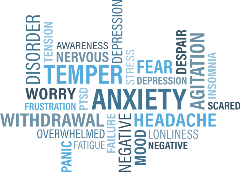Behavioral Health

Behavioral health is a major public health issue in the District of Columbia. Sadly, many of the legislative and regulatory initiatives around behavioral health are tied to other public health concerns, such as opioid addiction, maternal mortality, and health equity.
In partnership with the Washington Psychiatric Society, AMA, and American Psychiatric Association (APA), MSDC works to ensure that patients receive appropriate support for behavioral health issues, that the practice of psychiatry is supported in the District, and that psychiatrists are available to patients in the District.
MSDC was a proud supporter of the Behavioral Health Parity Act of 2017, which enshrined into law that all health plans offered by an insurance carrier meet federal requirements of the Wellstone/Domenici Mental Health Parity and Addiction Equity Act of 2008.
MSDC Statements and Testimony of Behavioral Health Issues
25th Council period information coming soon
What to Know About the DC Scope of Practice Expansion Bill
The Medical Society of the District of Columbia (MSDC) is the leading voice for physicians in Washington, DC, committed to uniting physicians to advocate for physician-led health care in Washington, DC that protects patients from harm and increases access to quality care. MSDC is leading a coalition of Washington, DC specialty medical societies to advocate against the Health Occupations Revisions General Amendment Act of 2023.
MSDC has long advocated that a physician is the most qualified professional at the head of a care team. Physicians have the most health education and pre-practice experience of any health professional, and thus must be involved in all but the most mundane health care decisions. Allied health professionals are a valuable part of the care team, but their medical education and experience limits their role.
Specifically, we are asking for the following changes to the proposed bill:
- Do not expand the type of health care professionals allowed to prescribe narcotics in light of the ongoing opioid crisis in the District.
- Do not allow podiatrists to apply anesthesia.
- Do not allow pharmacists to order and interpret lab testing without physician supervision because they do not have the proper training to do so independently.
- Do not allow allied health professionals to administer anesthesia without physician supervision since only physicians have the proper amount of training to do so independently.
- Do not allow athletic trainers to “practice medicine” beyond administering first aid.
- Do not expand chiropractic care to include “primary medical care” currently reserved for physicians because they lack the proper training to do so independently.
- Do not allow physical therapists to order radiologic imaging without physician supervision because they lack the proper training to do so independently.
- Do not remove the current restrictions on scope of practice for allied health nurses because their level of training does not match that of physicians.
What are the next steps with the bill?
The DC Council will consider the bill in May.
What can I do about the bill?
We urge physicians licensed in Washington, DC to contact the Mayor’s Office and DC Council to express any concerns they may have on the proposed expansion to scope of practice for allied health professionals in the bill as a misguided risk to their health.
Click here to send an individual letter today.
Visit our coalition page to learn more.
Sample of Legislation MSDC is Tracking in Behavioral Health
(see the whole list of bills here)
What does it do? The bill requires licensed health providers to complete 2 hours of CME on suicide prevention, assessment, and screening.
MSDC position: MSDC opposes the bill as written as the language does not encourage physician wellbeing or sufficient awareness of suicide prevention.
Current status: The bill had a hearing with the Committee on Health on June 10.

Leave a comment